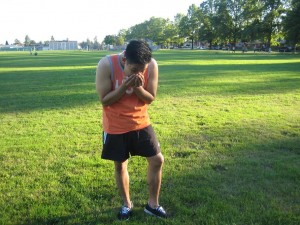The chest cold or bronchitis typically occurs once an infection of the upper respiratory tract such as common cold goes beyond to the airways of the lungs. Take note that the invasion of the Streptococcus pneumonia or Haemophilus influenza can follow and aggravate the primary viral infection. The symptoms of chest cold typically include mild fever, coughing, headache, sore throat, fatigue and breathlessness. Remember that the symptoms of this condition can last up to 2 weeks while the cough lasts longer.
Cough
The symptoms of chest cold can develop into coughing that can last longer even the other symptoms have subsided. In most cases, a barking cough, wheezing or hoarseness can develop due to the viral infection. The remedies for cough typically include antitussives to help suppress the cough or expectorants to help loosen up the mucus in the airways so that it will be easier for the individual to cough up.

The individual should rest and drink up to 2 quarts of fluids in a day to maintain the fluidity of the mucus. In case the cough has greenish or yellowish mucus, a doctor must be consulted so that antibiotics are prescribed. If you want to effectively manage this symptom, click here.
Fever
An increase in the body temperature or fever is part of the bodily mechanism in fighting off infection. An individual with fever is hot, sweats more than usual and appears flushed. The ideal way to reduce the temperature and provide comfort to the individual is to sponge the arms, legs, face and neck with lukewarm water and allow the skin to naturally dry. Take note that the evaporation of the water will cool the body. Since sweating increases thirst, provide the individual with plenty of fluids to drink.
Sore throat
A sore throat can be triggered by a bacterial or viral infection or the constant effort to clear up the mucus that is produced in the upper airway. Understandably, this will cause inflammation and irritation in the lining of the throat. The ideal treatment for a sore throat is to drink plenty of fluids and provide throat lozenges to suck on. In case the pain is severe, provide pain medication such as acetaminophen. Gargles, mouthwashes or throat sprays can also help soothe the pain.
Headache
A headache and generalized body pain often occur once an individual has chest cold. It is recommended to consult a doctor if the headache is persistent or worsens when the head is moved, especially when accompanied by neck stiffness, fever or sensitivity to light.
Body aches and fatigue
Diminished energy, fatigue and body aches are symptoms typically linked with chest cold. The generalized fatigue must subside within a few days as the body fights off the virus. Using a pain medication can alleviate the body aches. Remember that adequate rest and increased intake of fluids can help the immune system fight the invading organisms. The symptoms must subside in a week or two but the runny nose and coughing can still persist for some time.
